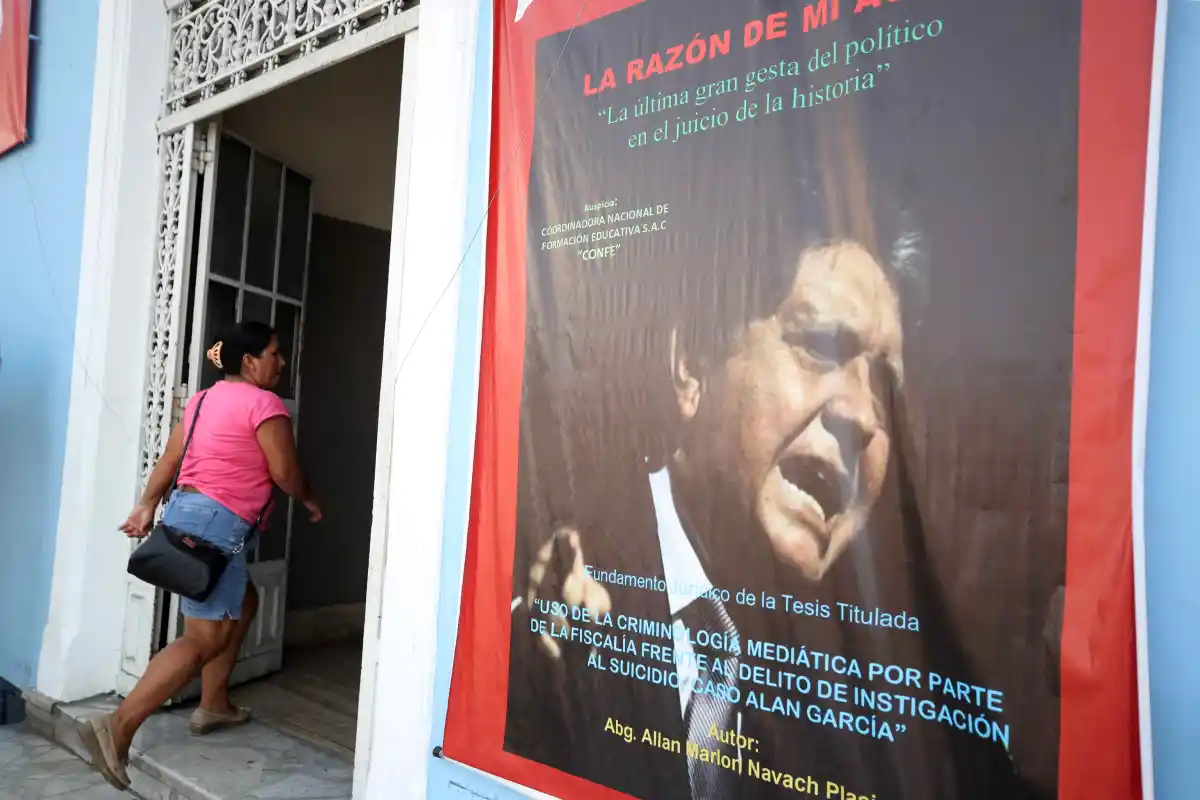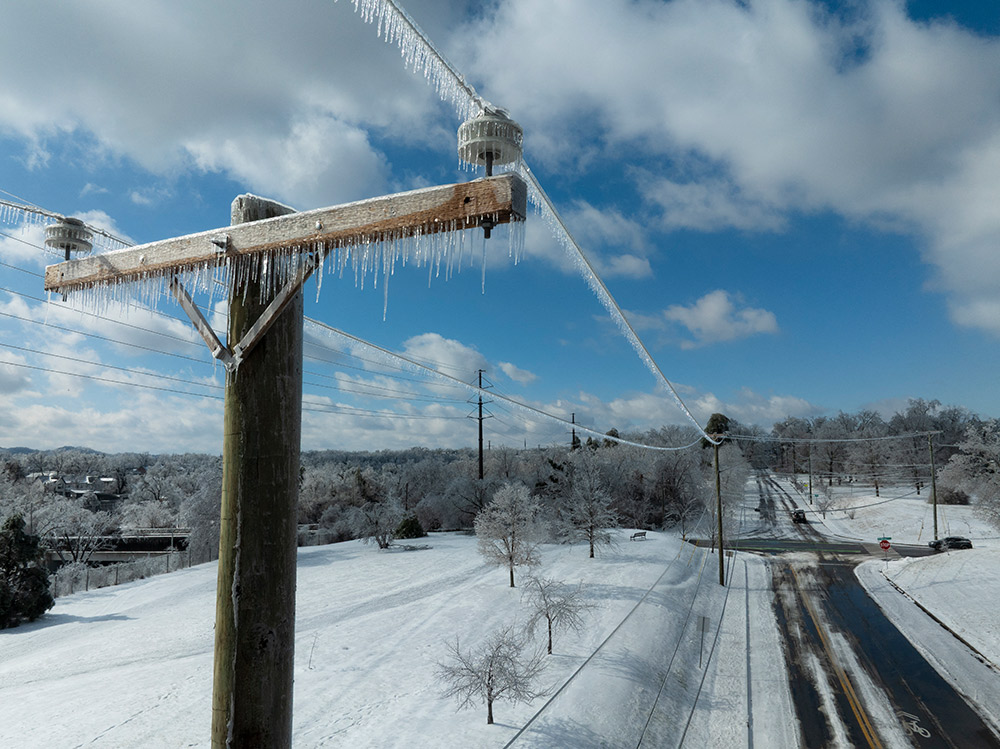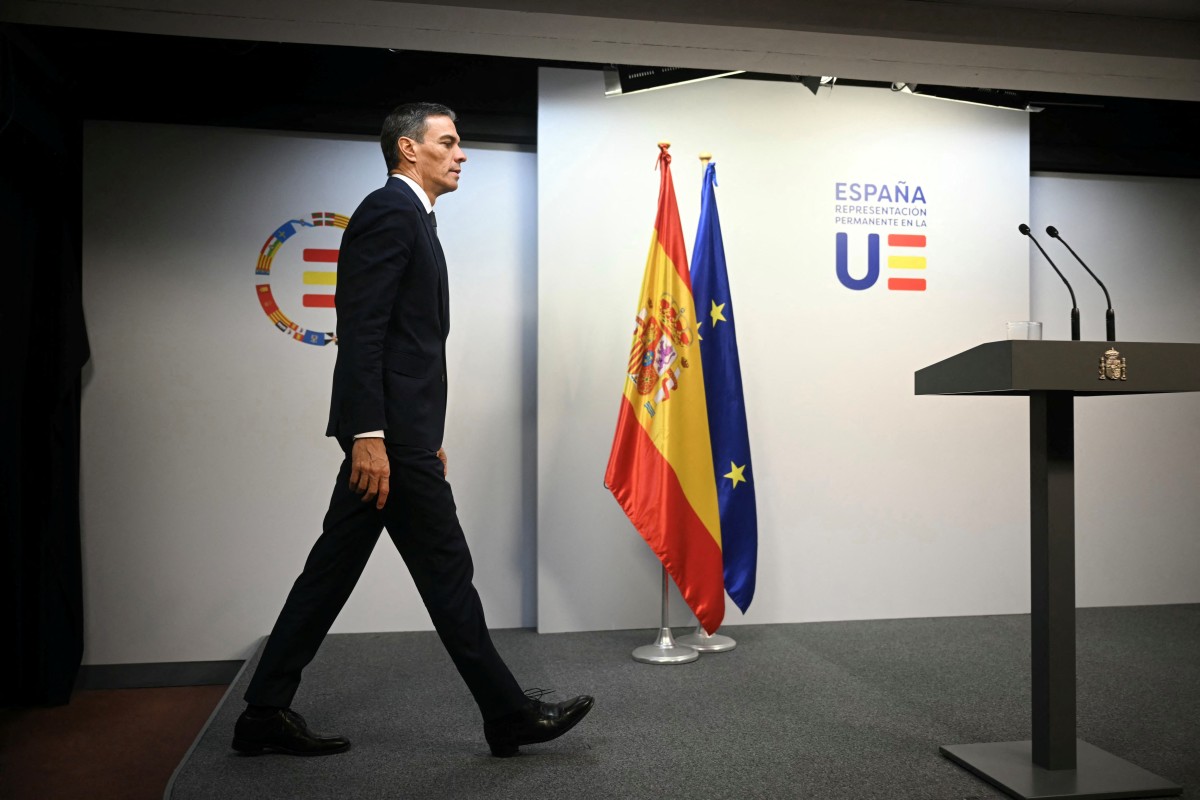International
The figure of Alan García is blurred in Peruvian politics five years after his death

Five years after his death, the figure of the powerful president Alan García (1949-2019) has been blurred without the appearance of a visible heir of his political legacy, or of his leadership in the historic Peruvian Aprista Party (PAP), which even lost its registration in the electoral register for two years.
García committed suicide on April 17, 2019 when he was going to be arrested for his alleged links to the Odebrecht case, although his closest collaborators have insisted during these years that he was the victim of a “criminal conspiracy.”
The controversy about his death was briefly revived last March, when several of his followers, including former Prime Minister Jorge del Castillo, complained about the decision of the Judiciary to authorize the Prosecutor’s Office to check two cell phones that were seized in his home.
Although that decision prohibited the Public Ministry from extracting or recovering information outside the process for the ‘Lava Jato’ case in Peru, Del Castillo assured that it was “outlaw,” since the investigation against the former president “ended with his death.”
Alan García was 69 years old when he committed suicide to prevent a group of police and prosecutors who arrived at his house from preliminarily detaing him for his alleged connection with the Odebrecht case, which he always denied.
He was made a farewell with massive funerals held at La Casa del Pueblo, the historic place of the PAP located in the center of Lima, and his remains were cremated on April 19, 2019.
From the beginning, his death generated controversies and clashes between followers and detractors, which have not been attenuated over time and even led a couple of years ago politicians such as the ultra-conservative Rafael López Aliaga, who has been mayor of Lima since 2023, to affirm that they would request that she be investigated.
In May of that year, former President Pedro Pablo Kuczynski, who is also being prosecuted for alleged corruption crimes related to the Odebrecht case, directly accused the Prosecutor’s Office of having “led to death” Alan García.
His closest followers have always pointed out that “he was the victim of a criminal conspiracy,” which they linked to incidents prior to his death, such as his entry into the Uruguayan embassy, whose Government refused in December 2018 to grant him the asylum he requested with the argument that he was a “political persecuted.”
Shortly before, Odebrecht executives assured that they had given him four million dollars during his second government, which he reached despite the fact that the shadow of corruption already haunted him from his first administration, from 1985 to 1990, when his administration left his country immersed in an unprecedented economic crisis.
Beyond that, and despite the fact that Alan García maintained a very active presence in Peruvian politics, his memory is decreasing both in local media, which in life they dedicated great coverage to him, and in the political space, something that has been consolidated by the absence of representatives of the PAP in Congress.
Although his supporters defend that his legacy cannot be erased, shortly after his death the leaders of his group engaged in internal disputes that generated a crisis that led to his retirement from the 2021 general elections.
Faced with that situation, in September of that year the National Election Jury (JNE) confirmed that the PAP, which was founded in 1930 by Víctor Raúl Haya de la Torre, had lost its official registration.
Finally, after numerous procedures and challenges, the party managed in March 2023 to confirm that it had been re-registered in the Registry of Political Organizations (ROP) of the JNE, so it will be able, in principle, to participate again in the elections to be held in Peru in 2026.
International
Winter Storm Fern Leaves 30 Dead and Over One Million Without Power Across the U.S.

The massive winter storm Fern, bringing polar temperatures, battered large portions of the United States for a third consecutive day on Monday, leaving at least 30 people dead, more than one million households without electricity, and thousands of flights grounded.
In the Great Lakes region, residents awoke to extreme cold, with temperatures dropping below -20°C. Forecasts indicate that conditions are expected to worsen in the coming days as an Arctic air mass moves south, particularly across the northern Great Plains and other central regions, where wind chills could plunge to -45°C, temperatures capable of causing frostbite within minutes.
Across the country, heavy snowfall exceeding 30 centimeters in roughly 20 states triggered widespread power outages. According to PowerOutage.com, nearly 800,000 customers remained without electricity on Monday morning, most of them in the southern United States.
In Tennessee, where ice brought down power lines, approximately 250,000 customers were still without power. Outages also affected more than 150,000 customers in Mississippi and over 100,000 in Louisiana, as utility crews struggled to restore service amid dangerous conditions.
International
Spain approves plan to regularize up to 500,000 migrants in Historic Shift

In November 2024, Spanish Prime Minister Pedro Sánchez announced a reform of the country’s immigration regulations aimed at regularizing 300,000 migrants per year over a three-year period, in an effort to counter population aging in a country where births have fallen by 25.6% since 2014, according to official data.
Going against the trend in much of Europe, Spain’s left-wing government has now approved an exceptional migrant regularization plan that could benefit up to 500,000 people, most of them from Latin America.
The measure will allow the regularization of around “half a million people” who have been living in Spain for at least five months, arrived before December 31, 2025, and have no criminal record, Migration Minister Elma Saiz explained on public television.
The plan, approved on Tuesday by the Council of Ministers, establishes that applications will be processed between April and June 30, enabling beneficiaries to work in any sector and anywhere in the country, Saiz said.
“Today is a historic day for our country. We are strengthening a migration model based on human rights, integration, and one that is compatible with economic growth and social cohesion,” the minister later stated at a press conference.
The socialist government of Pedro Sánchez stands out within the European Union for its migration policy, contrasting with the tightening of immigration measures across much of the bloc amid pressure from far-right movements.
Central America
Honduras swears in conservative president Asfura after disputed election

Conservative politician Nasry Asfura assumed the presidency of Honduras on Tuesday with an agenda closely aligned with the United States, a shift that could strain the country’s relationship with China as he seeks to confront the economic and security challenges facing the poorest and most violent nation in Central America.
Asfura’s rise to power, backed by U.S. President Donald Trump, marks the end of four years of left-wing rule and secures Trump another regional ally amid the advance of conservative governments in Chile, Bolivia, Peru, and Argentina.
The 67-year-old former mayor and construction businessman was sworn in during an austere ceremony at the National Congress, following a tightly contested election marred by opposition allegations of fraud and Trump’s threat to cut U.S. aid if his preferred candidate did not prevail.
Grateful for Washington’s support, Asfura—who is of Palestinian descent—traveled to the United States to meet with Secretary of State Marco Rubio, before visiting Israeli Prime Minister Benjamin Netanyahu.
“We need to strengthen relations with our most important trading partner,” Asfura said after being declared the winner of the November 30 election by a narrow margin, following a tense vote count that lasted just over three weeks.
-

 Central America2 days ago
Central America2 days agoGuatemala seizes over a ton of cocaine hidden in flour at Pacific port
-

 Central America4 days ago
Central America4 days agoGuatemala’s president rules out negotiations with inmates after prison riots
-

 International4 days ago
International4 days agoTrump-Era Defense Plan Prioritizes Border Security and Scales Back Global Commitments
-

 Internacionales4 days ago
Internacionales4 days agoMajor winter storm threatens “catastrophic” ice and snow across much of the U.S.
-

 International4 days ago
International4 days agoBogotá and Quito Seek Dialogue After Tariffs and Power Cut Escalate Tensions
-

 International3 days ago
International3 days agoDelcy Rodríguez seeks political agreements after Maduro’s ouster
-

 International4 days ago
International4 days agoGuatemala considers sending high-risk gang members to military prisons
-

 International2 days ago
International2 days agoHistoric snowstorm paralyzes Toronto after 60 centimeters of snow
-

 International2 days ago
International2 days agoSpain’s irregular migrant population rises to 840,000, study finds
-

 International3 days ago
International3 days agoFederal immigration agents kill man in Minneapolis, sparking protests and outrage
-

 Central America13 hours ago
Central America13 hours agoGuatemala Police Arrest Prison Guard Caught in the Act of Extortion
-

 International4 days ago
International4 days agoRights group says over 5,000 killed in Iran protests, mostly civilians
-

 International13 hours ago
International13 hours agoWinter Storm Fern Leaves 30 Dead and Over One Million Without Power Across the U.S.
-

 International14 hours ago
International14 hours agoDoomsday clock moves to 85 seconds before midnight amid rising global risks
-

 International2 days ago
International2 days agoRights group says nearly 6,000 killed in Iran protest crackdown
-

 Central America13 hours ago
Central America13 hours agoHonduras swears in conservative president Asfura after disputed election
-

 Sin categoría13 hours ago
Sin categoría13 hours agoEight Killed in Series of Armed Attacks in Ecuador’s Manabí Province
-

 Central America14 hours ago
Central America14 hours agoBukele leads public trust rankings as UCA survey highlights gains in security
-

 International2 days ago
International2 days agoVenezuela frees at least 80 political prisoners, NGO says
-

 International13 hours ago
International13 hours agoSpain approves plan to regularize up to 500,000 migrants in Historic Shift
-

 International2 days ago
International2 days agoEU launches new probe into X over AI-generated fake nude images
-

 Sin categoría13 hours ago
Sin categoría13 hours agoEl Salvador Launches Fourth Year of Ocean Mission to Protect Marine Ecosystems
-

 International2 days ago
International2 days agoSevere winter storm grips U.S., leaves multiple dead as extreme cold persists
-

 International2 days ago
International2 days agoFrance debates ban on social media for children under 15


























